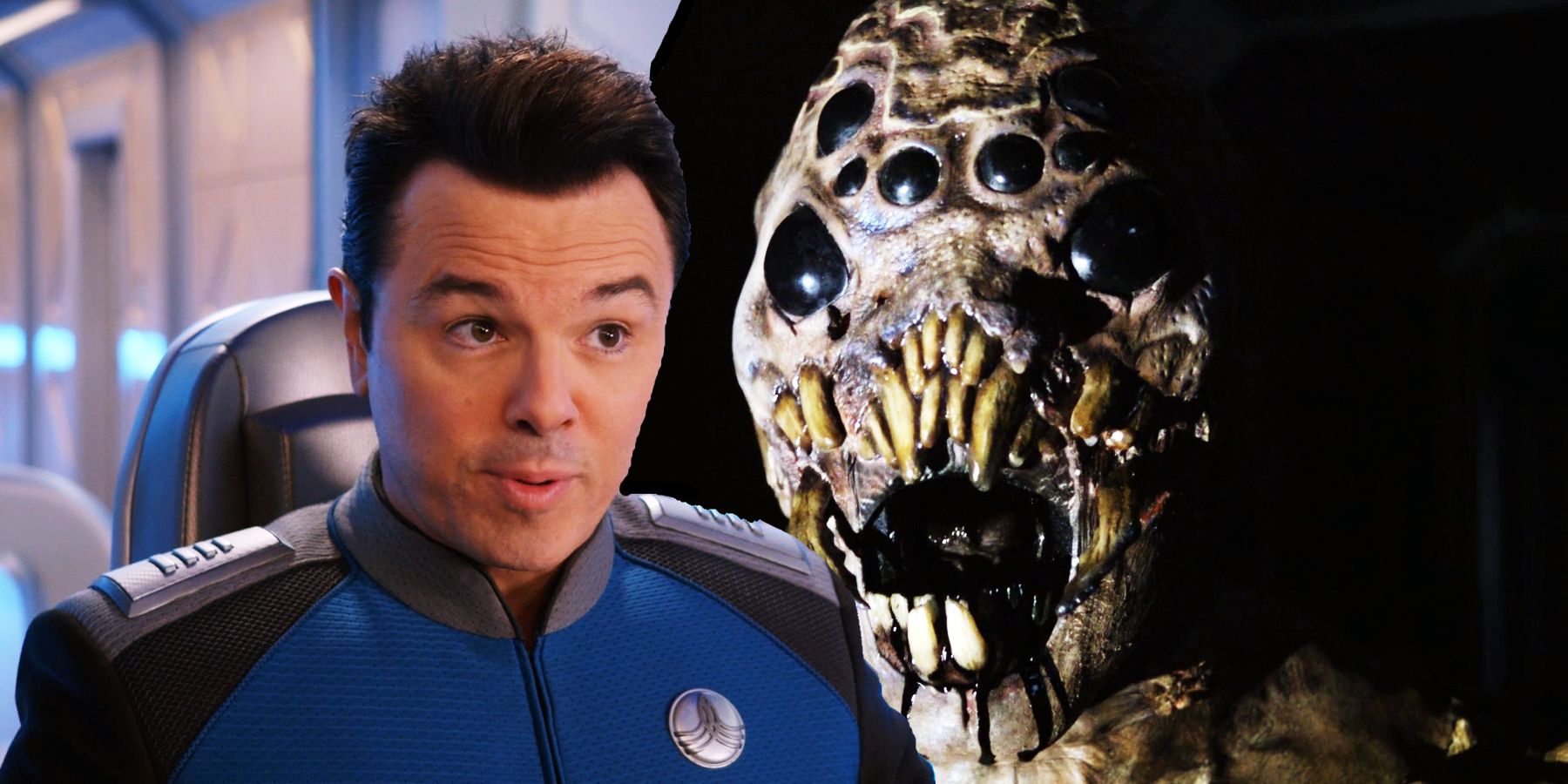The Orville is one of Rotten Tomatoes’ highest-rated shows, but it hasn’t always been such a critical darling; here's what changed. In terms of new programming, Seth MacFarlane’s love letter to Star Trek is the closest Trek purists can get to the real thing. It’s an antidote to the darker, sleeker visions of Star Trek: Discovery and Star Trek: Picard, honoring the older series in both spirit and execution. In fact, while The Orville was sold as a Star Trek parody, its near-religious adherence to Gene Roddenberry’s vision suggested it was something else: a piece of high production value, lovingly made fan fiction. The Star Trek hallmarks were all there, from the spirit of exploration to the theme of cultural relativism, to the juxtaposition of quaint charm against big philosophical ideas.
This, however, wasn't what Fox executives were expecting from their golden goose, McFarlane, whose irreverent and edgy Family Guy, American Dad, and to an extent, The Cleveland Show, have all been major hits for the network. So, to get season 1 of his wholesome, reverent Orville greenlit at Fox, MacFarlane gave the executives what they wanted - toilet humor. That wasn't what McFarlane wanted, however, and it showed. Season 1 was a tonal mess, full of shoehorned lowbrow jokes that broke the immersion and came off as cynical. Critics took notice, and the first season of The Orville splatted with a 31% on Rotten Tomatoes. Still, the show proved popular with audiences, and The Orville got renewed for a second and third season. This was no surprise. Seth MacFarlane has always had the Midas touch where audiences are concerned. Moreover, The Orville gave disgruntled Star Trek purists what they'd been clamoring for - a return to the show’s earlier vision - even if it was an unofficial IP. What was surprising was the critical response. Between seasons 1 and 2, The Orville went from a 31% to a 100% on Rotten Tomatoes and stayed there for season 3.
Seth MacFarlane made multiple improvements after season 1, but the main reason for The Orville’s dramatic rebound from 31% to 100% on Rotten Tomatoes was an improvement in tone. By paring back the toilet humor and grounding what jokes there were in the story, MacFarlane and his writers were able to strike a more balanced tone, turning The Orville around into the tasteful dramedy it was meant to be. Critical acclaim was soon to follow, but the critics weren’t the only ones who were happy. The network execs had another MacFarlane-label hit on their hands, audiences had their diet-Trek, and MacFarlane got to make his love letter to Star Trek even more loving.
How Seth MacFarlane's Writing Changes Saved The Orville
Saving the crass joke-infested Orville with his writing was no small feat for Seth MacFarlane, even if the jokes were his to begin with. MacFarlane has always been a strong comedy writer. He’s also been all too eager to fall back on juvenilia, a habit that's led some other prominent comedy writers to accuse him of laziness. Now, with The Orville seasons 2 and 3, he's at least proven he's lazy by choice. No one would have expected the lowbrow laureate of America to rescue his sinking show with mature, balanced writing, yet for the past four years, The Orville has delivered well-rounded characters, touching moments, and thoughtful insights.
Of course, it could be argued that all the well-rounded characters, touching moments, and thoughtful insights in The Orville are just recycled material from Star Trek, from which MacFarlane steals with gleeful blatancy. It could also be argued that it was only a matter of time before the 48-year-old MacFarlane would want to try something new. Whatever the means, if critical consensus for The Orville is anything to go on, they were justified by the ends.


